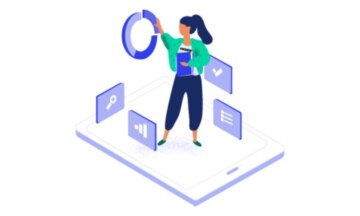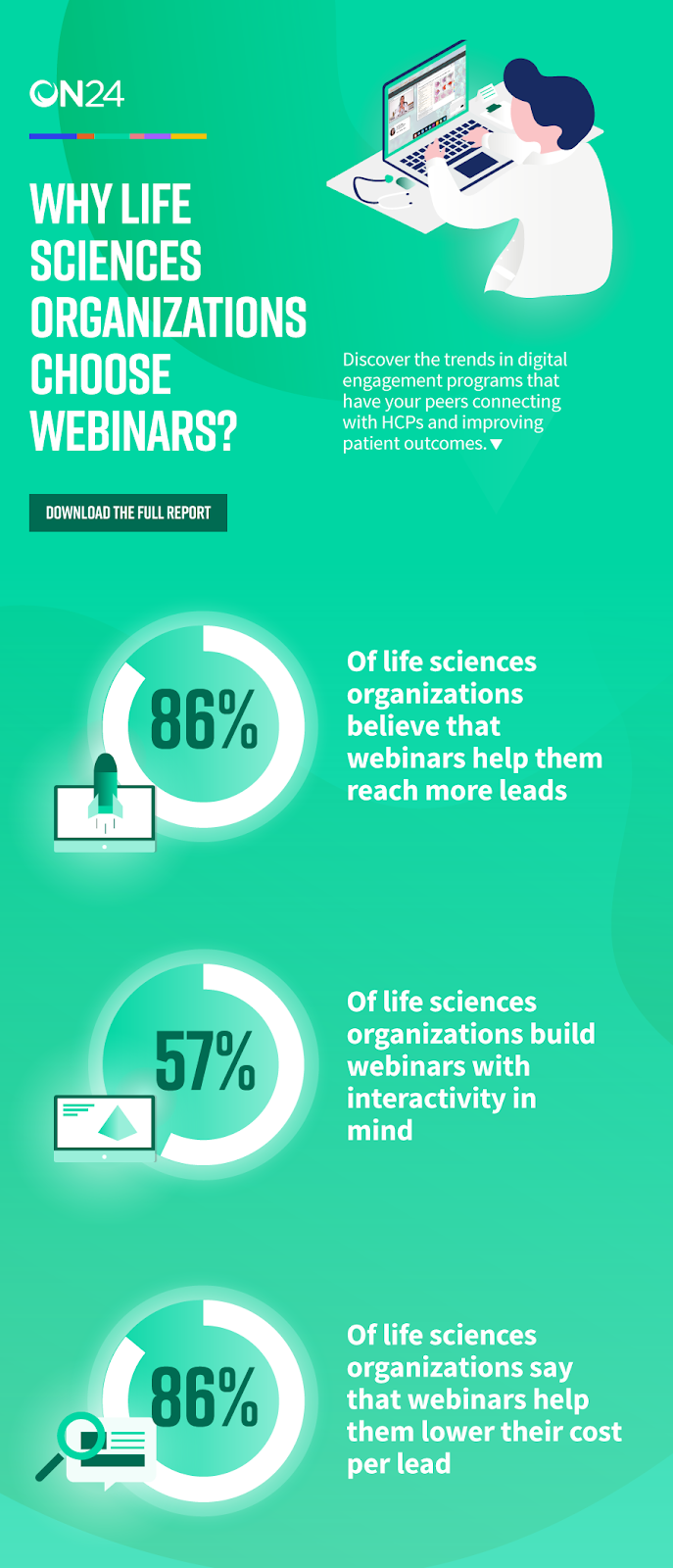Three Ways The Digital World Is Changing Life Sciences

The is changing the fast. Legacy organizations are facing new challenges in the form of new competition from -based upstarts, new markets and renewed scrutiny of how companies transport and store protected health information through .
Over the past few weeks, we’ve examined some high-level digital changes and how they affect the . We’ve also considered the digital opportunities organizations can, and should, take advantage of to remain competitive in a fast-changing landscape.
We’ve also surveyed our life sciences clients for their input on how webinars are helping to achieve their digital goals.
So, what, exactly, is changing in the industry? Here’s a brief recap of what we found:
First, Is Creating Better Patient Experiences With Digital
aims to help patients. And, with advances in and digital tools, the patient is now in a better position than they’ve ever been before. For example, practitioners have more immediate access to information on new prescriptions, treatment plans and disease-management tools that they can share with patients.
Still, there is room for improvement. A recent Accenture study found there’s a sizable communications gap between service providers, practitioners and patients about these new services. According to the study, roughly half of the HCPs who learn of new patient services say they only hear about them from sales representatives or other a quarter of the time.
Second, The Is Driving and
According to Frost & Sullivan ‘s 2019 Global Life Sciences Outlook, the global will reach $1.5 trillion in value by 2022, largely driven by innovations and strategic partnerships. These new entrants to the market mean legacy life sciences organizations will need to simultaneously improve performance, manage risk and maintain compliance – a standard newly founded companies are already familiar with.
While traditional life sciences companies also face another issue when it comes to digital: the pace of adapting to this new landscape is too slow. According to Across Health’s 2018 Multichannel Maturometer, nearly 60% of pharma and biotech organizations say their pace of digital adoption is “slow” or, “very slow.” It doesn’t get better when it comes to healthcare providers in the United States, where, according to a recent Unisys study , 64% rated themselves as being behind the digital curve.
Third, Digital Provides Professionals With a Great Opportunity
But it isn’t all doom and gloom. Established life sciences organizations of all stripes have a great opportunity to use digital innovations to accentuate their strengths and improve upon their weaknesses.
For example, while HCPs still prefer in-person meetings to assess medical information, digital tools like webinars are quickly gaining traction. Providing HCPs with a digital option like webinars allow the opportunity to guide HCPs through medical innovations, answer questions as if they were face-to-face and remain compliant with virtually any compliance or regulatory standards.
is constantly changing — and the must change with it. In the wake of the , the industry is enjoying better remote communications, for research and and better relationships between both HCPs and patients. Soon, will learn how to capitalize on and make the most out of to deliver better and .

